Homesteaders grow their own food to offset the soaring costs of grocery shopping. Here are some simple ways you can get started no matter where you live.
Gabrielle Bienasz

Ciearra Evans with her haul.Courtesy subject
- Homesteaders grow food or raise livestock and, along with prepping, it has seen an uptick amid inflation.
- Homesteading and prepping can create security and can save money, depending on your approach.
Homesteading is a movement where people, with land or not, start to produce their own food and other products.
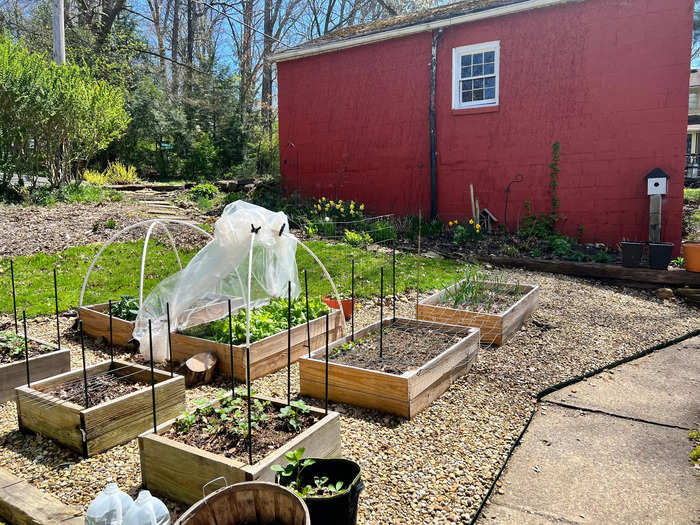
The Thrifted Planter homestead. Courtesy subject
They grow crops like melons or tomatoes at homesteads of varying sizes.
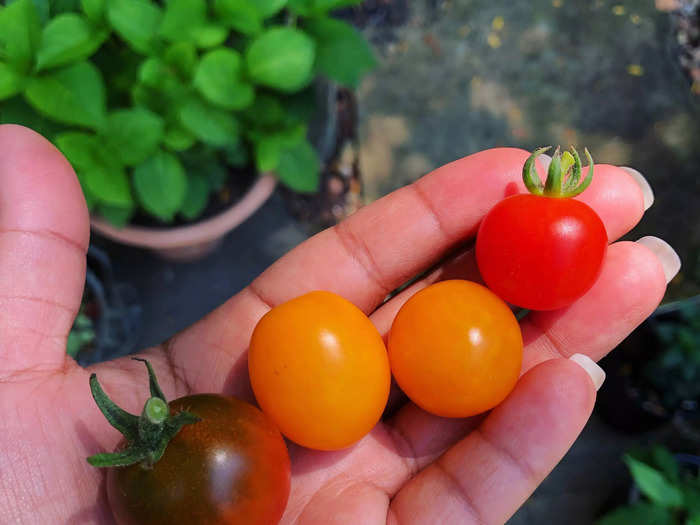
A cherry tomato haul from Ciearra Evans of The Thrifted Planter homestead. Courtesy subject
Or raise livestock, like goats.
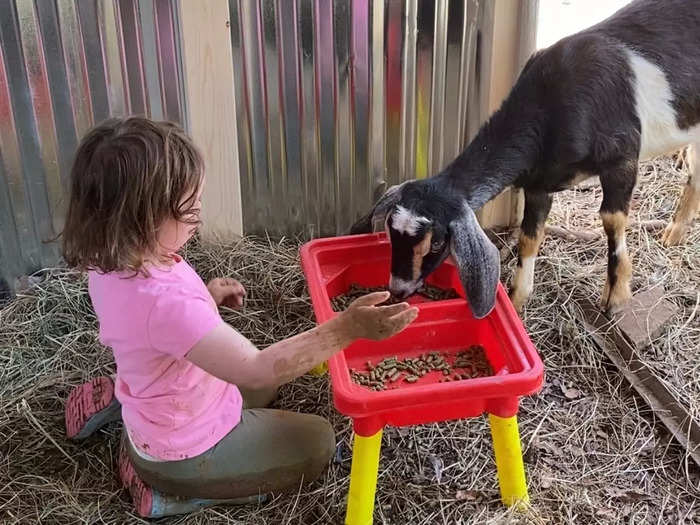
Laurie, human, and Sage, the goat, at Standing Pine homestead in Texas. Courtesy company
Homesteaders told Insider that they’ve seen more interest on social media since the pandemic, the war with Ukraine, and inflation.
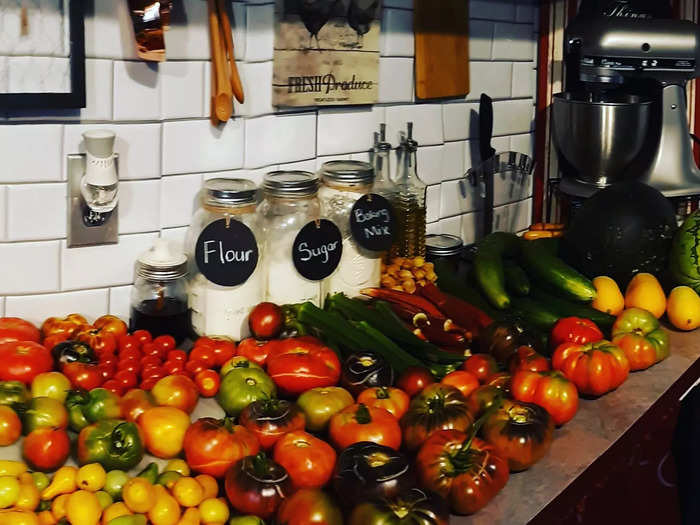
A yield from Nivek Anderson Brown of Leaf and Bean farm in Virginia. Nivek Anderson Brown
Source: Insider.
All of these trends have made food less consistently available or more expensive.
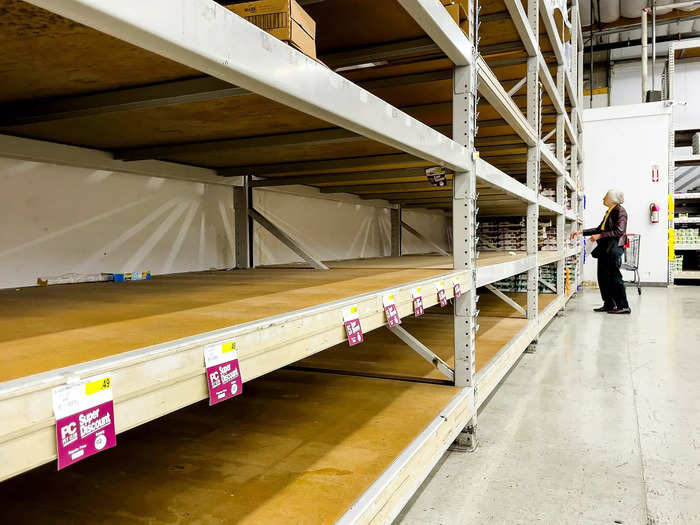
Noah Berger/AP
Some homesteaders say you can save cash by growing your own food, depending on how you do it. You can also try prepping, a related niche, to secure the food you've grown and help you preserve what you buy in bulk, said Cidni, a homesteader in East Texas.
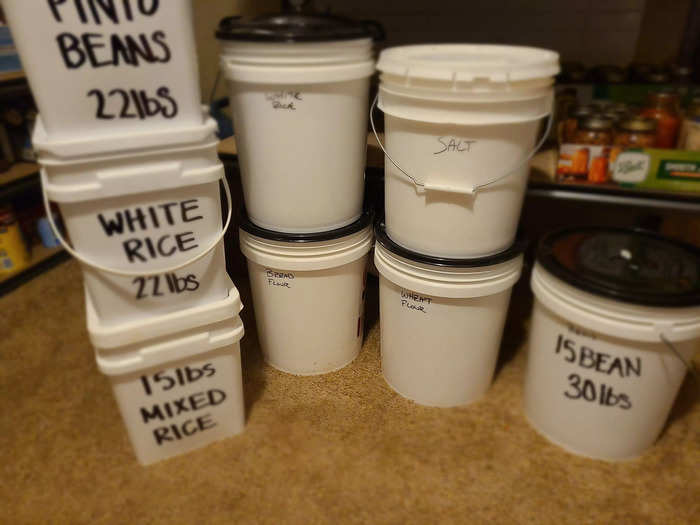
Prepped at Standing Pine. Courtesy company
(She doesn't use her last name online for privacy reasons.)
Homesteading is a lifestyle, and sometimes involves land. But anyone, from people with black thumbs to people with apartments without room for chickens, can pick up a few practices, four practitioners told Insider.
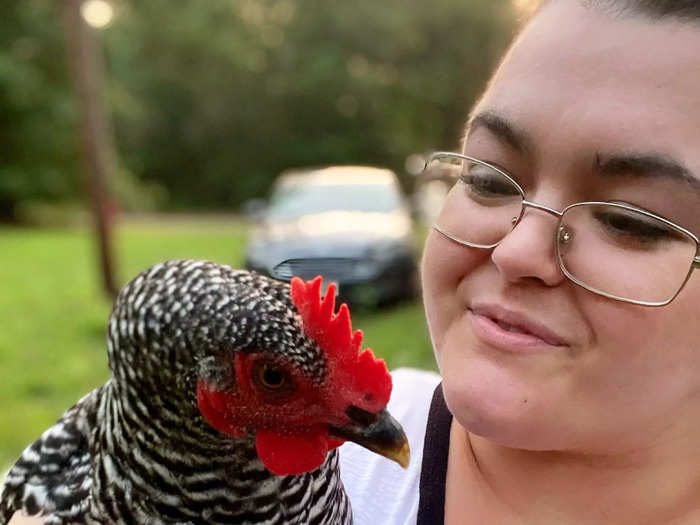
Cidni of Standing Pine with a chicken. Courtesy company
Here are a couple of beginner homesteader tricks you can start yourself.
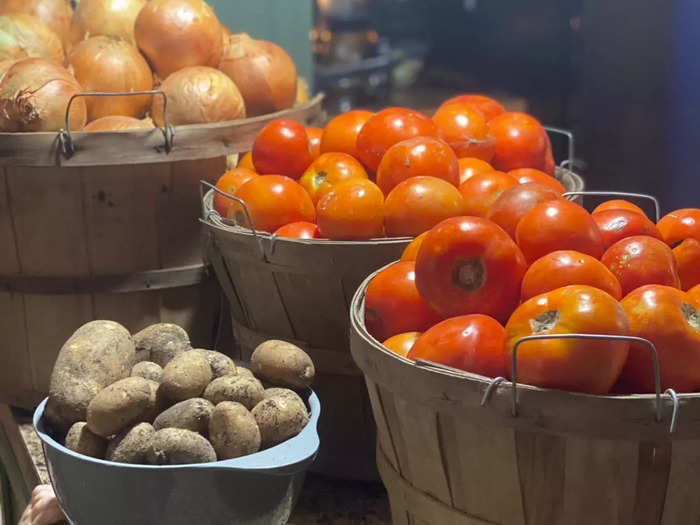
Standing Pine Farm yield. Courtesy company
Meet Ciearra Evans, who specializes in cost-effective gardening, known as "The Thrifted Planter" homestead online.
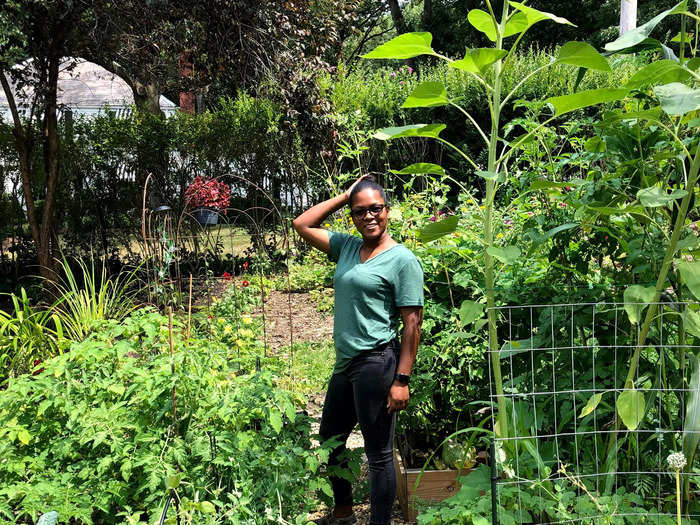
Evans during the 2021 harvest. Courtesy subject
She says that the most important step to saving money while homesteading is: not spending too much on the startup materials you need.
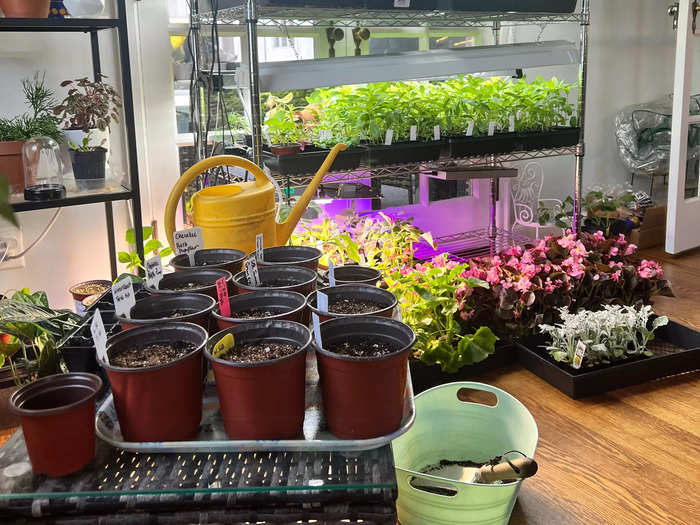
Nursing plants at The Thrifted Planter homestead. Courtesy subject
It's pretty easy to go crazy at Lowe's and buy everything full-price, she said.
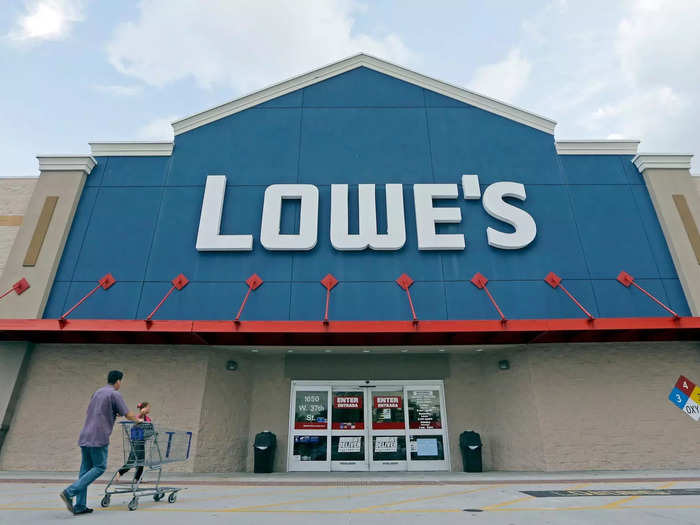
Alan Diaz/AP Images
"You can't help it. In the summertime, when you walk into the greenhouse or a garden center, and there's so much to look at...your cart is full before you know it," she joked
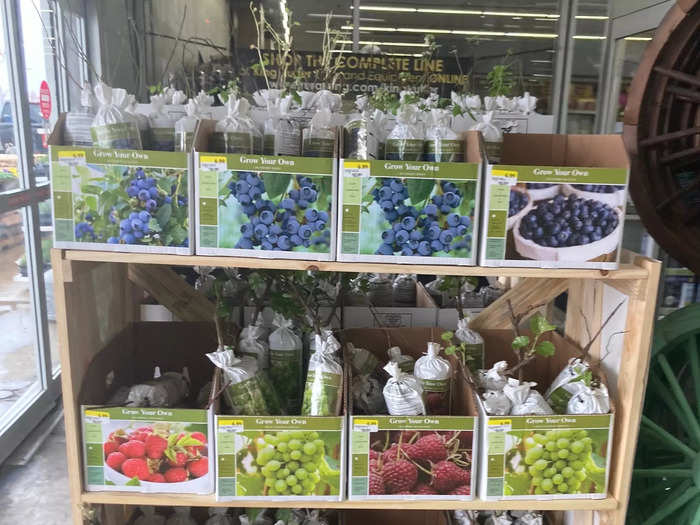
The front of the Rural King was decked out with gardening supplies for spring. Áine Cain/Insider
Seeds in particular are easy to over-buy, she said, because they're cheap and colorful.
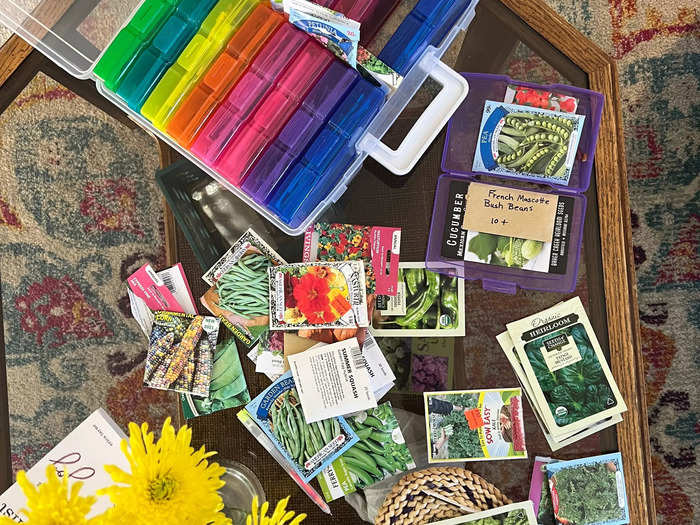
Evans' seed haul. They're easy to over-buy. Courtesy subject
So, one should first figure out a plan for what you want to grow and research what materials you need, Evans said.
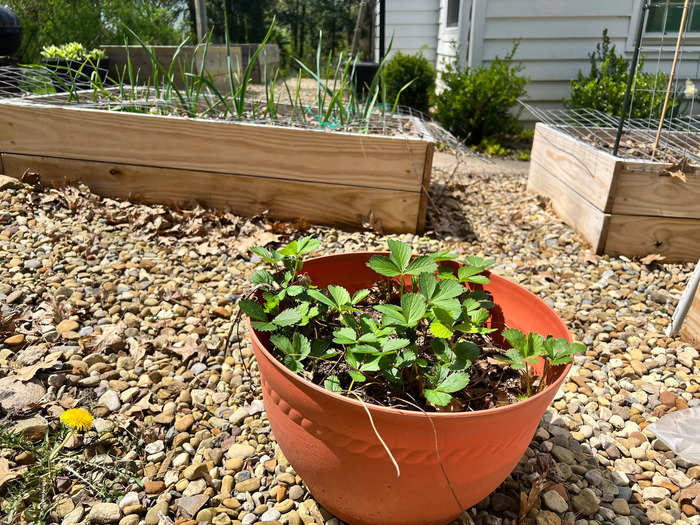
The Thrifted Planter. Courtesy subject
People love to jump into a crop because it looks cool (like this zebra tomato, which is striped even when it's ripe). "Pick a few things you and your family like to eat," Evans advised.
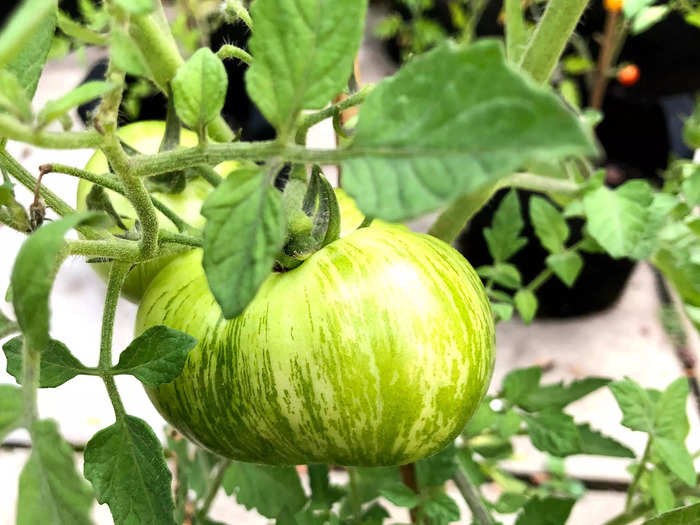
A zebra tomato at The Thrifted Planter. Courtesy subject
Once you know what you want, you can even skip the store and save seeds from grocery store-bought food — essentially, anything with a seed, advised Evans.
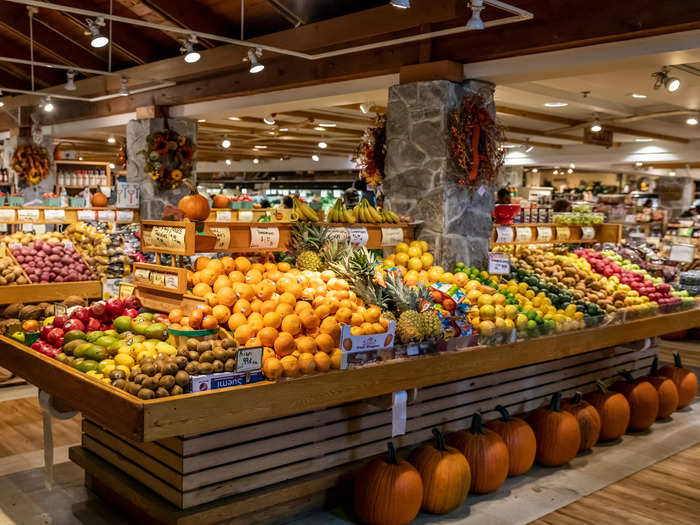
John Greim/LightRocket via Getty Images
Also, add a type of flower for pollinators to your plan. Evans suggests zinnias because they're easy to grow and easy for pollinators to reach.

Zinnias at The Thrifted Planter. Courtesy subject
You plan should also include how you plan to nurse your seeds and what containers or equipment you'll use to grow, from building beds to lights.
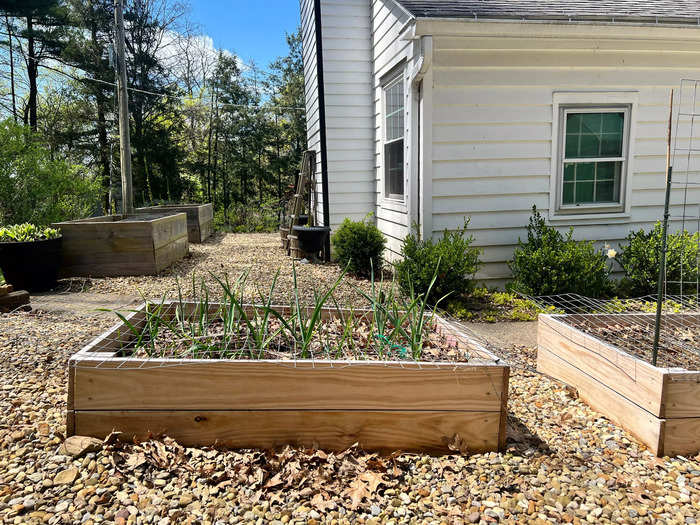
Gardening at The Thrifted Planter. Courtesy subject
With a plan in place, you can acquire the necessary tools thriftily. Evans buys supplies in bulk, and when they're cheap.
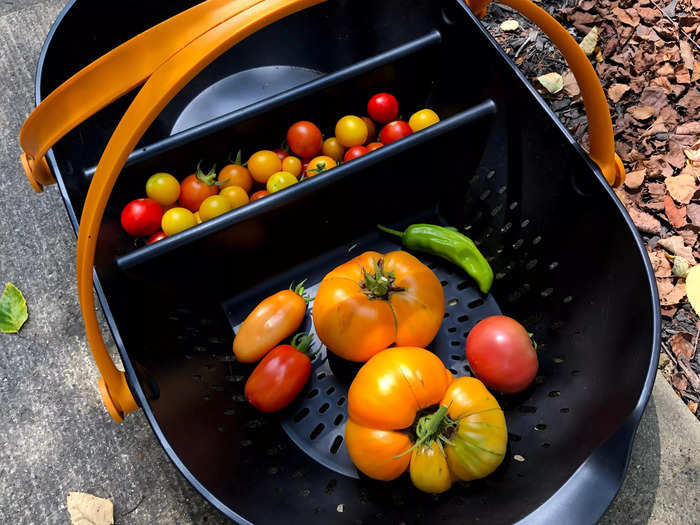
Tomatoes from The Thrifted Planter. Courtesy subject
Go to Dollar General or similarly low-priced stores for things like pots, trellises, and seeds, she advised.
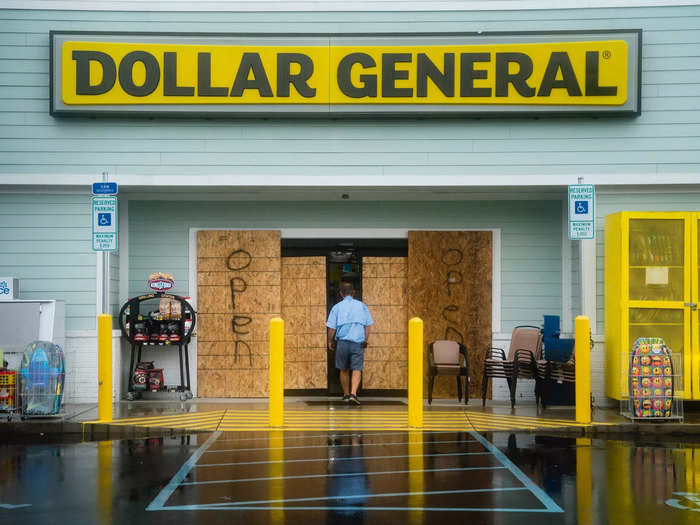
Elijah Nouvelage for The Washington Post via Getty Images
You can also repurpose things cheaply to work in the garden.
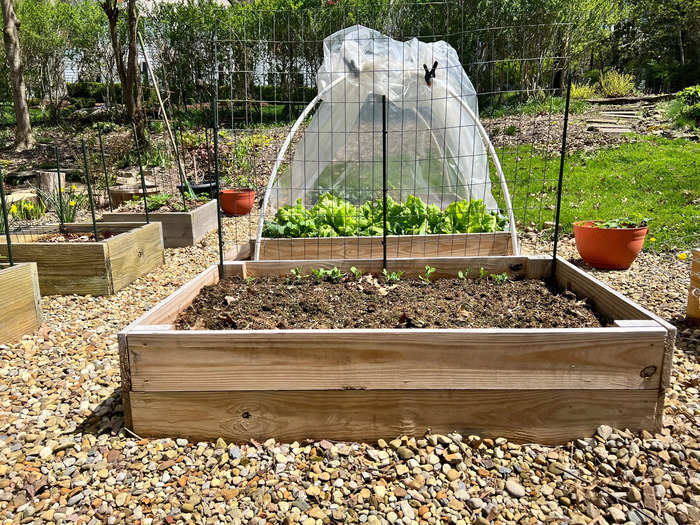
Evans used PVC pipe and plastic to make an ad-hoc greenhouse so she could start the growing season earlier. Courtesy subject
Evans said she grew the tomato plants in bottom right with felt bags she got for a few dollars each on Amazon.
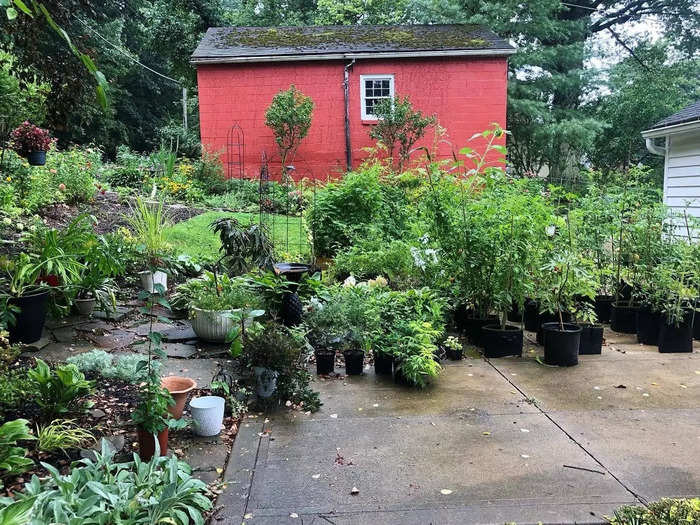
Tomato plants in bags from Amazon. Courtesy subject
She said she bought grow-lights for her seedlings on clearance from Walmart and uses the app Honey to alert her to price drops for items she needs to garden.
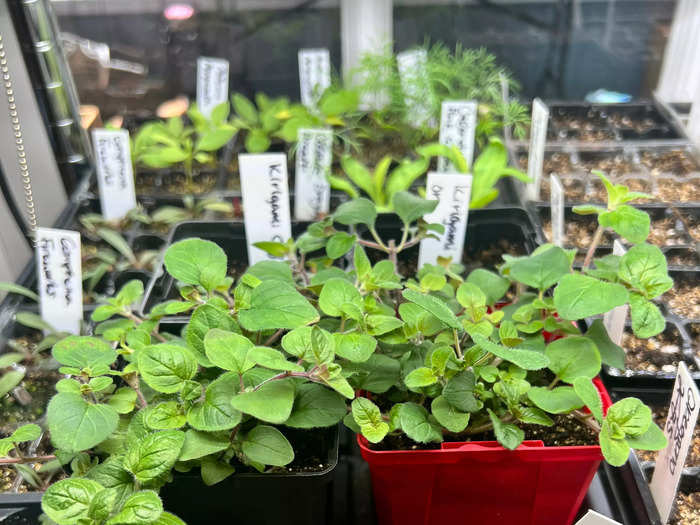
Seedlings at The Thrifted Planter Courtesy subject
To save on soil, she buys it in bulk when it goes on clearance in August and September, the end of the growing season in her area. Here's her big shop from last year:
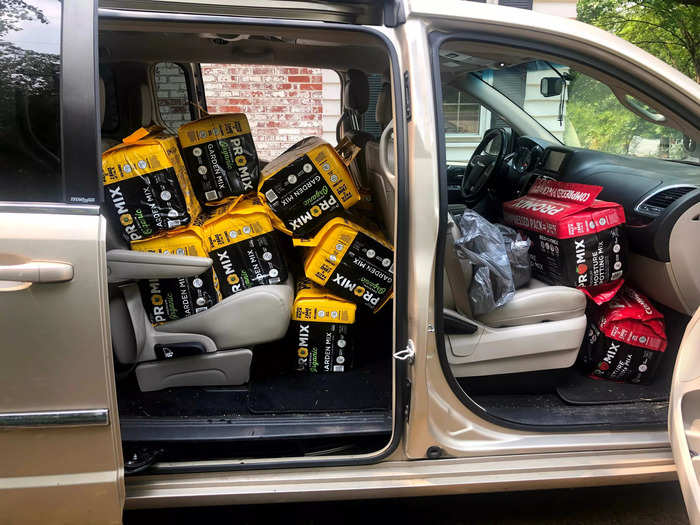
Fertilizer and soil haul. Courtesy subject
She ought the bags of soil and fertilizer on clearance for about $2.50 each, Evans said.
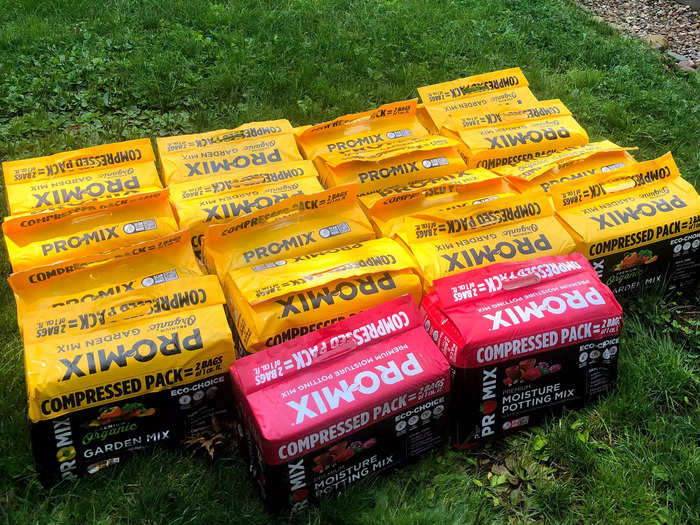
Soil and fertilizer on the lawn. Courtesy subject
Fertilizer prices are breaking records amid the war in Ukraine.
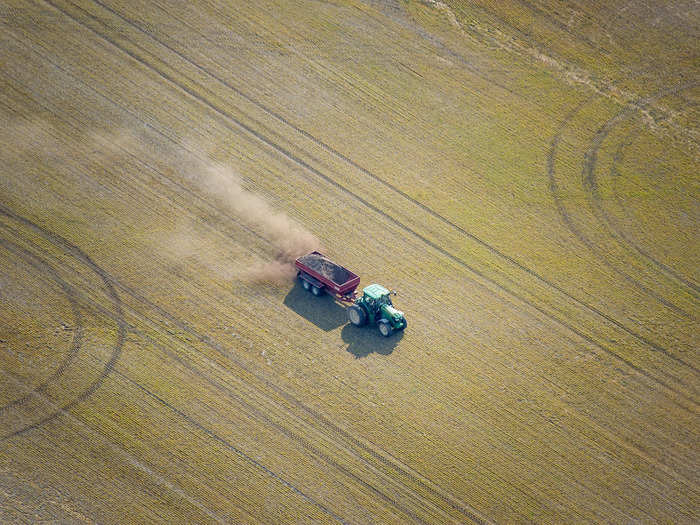
Farmer spreading chicken manure on crop field as fertilizer on the eastern shore of Maryland, USA. Edwin Remsberg/Getty Images
Evans said the bags now cost $14 each (and were just $12 a pop before they went on clearance).
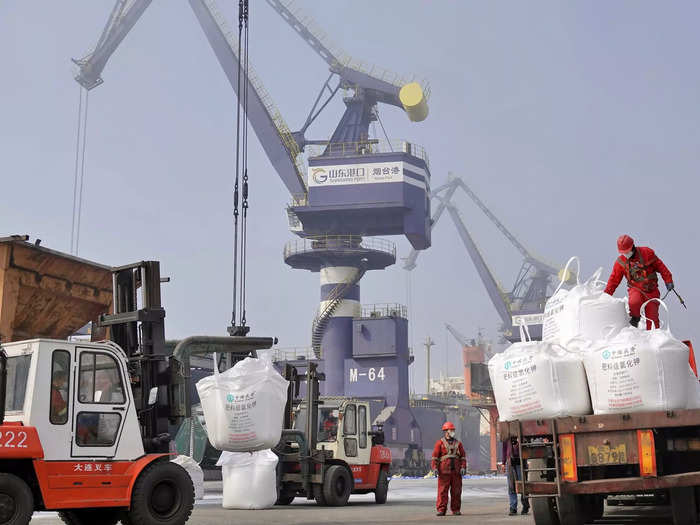
Workers unload imported fertilizer at The Port of Yantai, East China's Shandong Province, March 9, 2022 Costfoto/Future Publishing/Getty Images
That's me with my haul," she said.
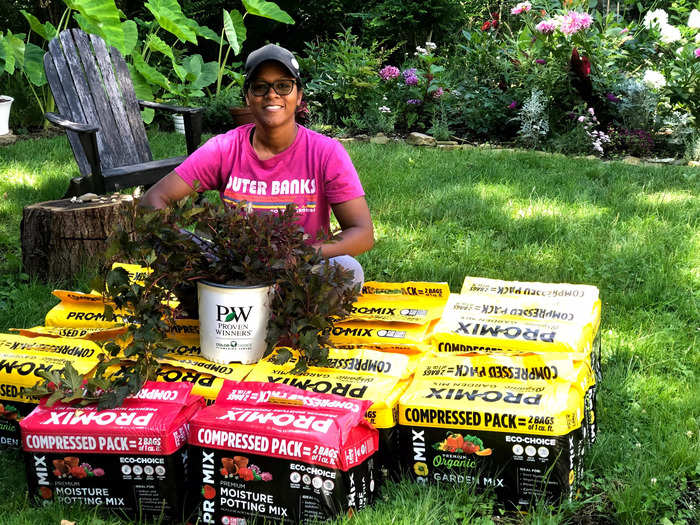
Ciearra Evans with her haul. Courtesy subject
Evans is feeding a family of six and estimated growing her food saved her family about $100 a month at the grocery store in the beginning.
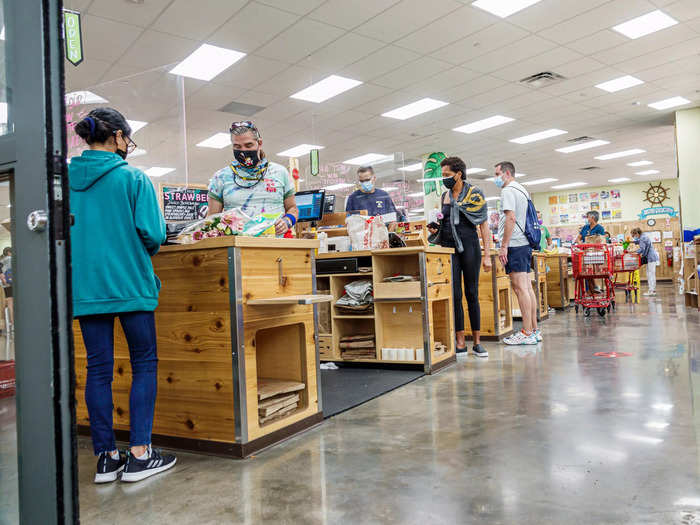
People wear masks at a supermarket in Miami Beach, Florida, on April 19, 2021. Jeff Greenberg/Universal Images Group/Getty Images
But it varies. Another homesteader, Alliyah Perry of The Green Gardens Homestead in Washington, told Insider previously she saved about $3,000 last year on groceries for her family. "There was a few months in the summer… where we just did not got to the grocery store at all." she said.
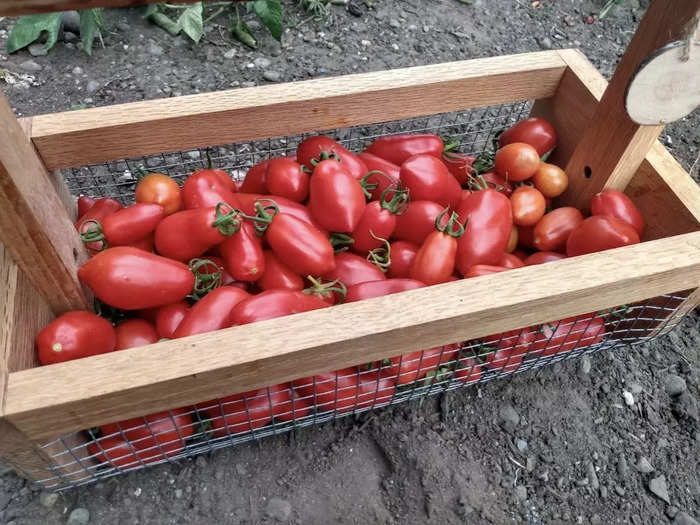
Yield from The Green Gardens homestead in Washington Alliyah Perry
Aside from money, growing your own food just feels better, Evans said.
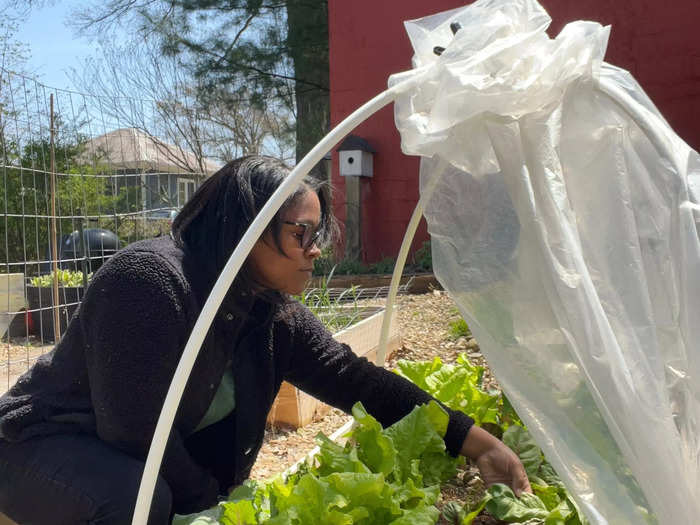
Cierra Evans in the garden. Courtesy subject
"I do like to have things in the cabinet we've grown ourselves, and you know where it comes from.. There's a lot of pride in that," she said.
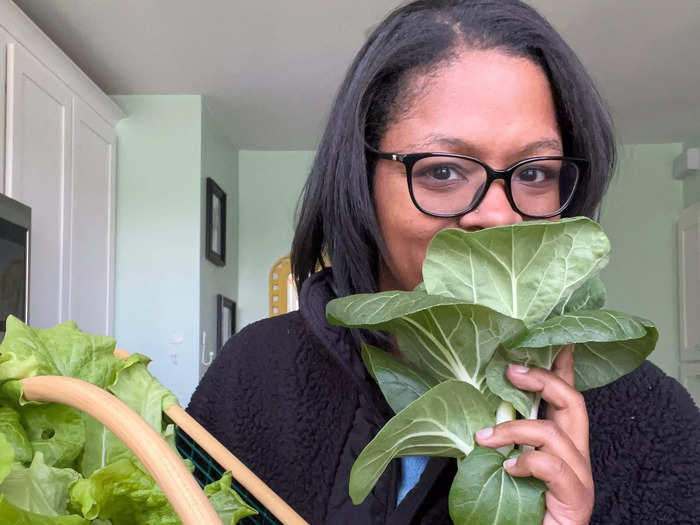
Evans with greens from the garden. Courtesy subject
Research aside, some crops are known to be easy for beginners or people without a lot of space.
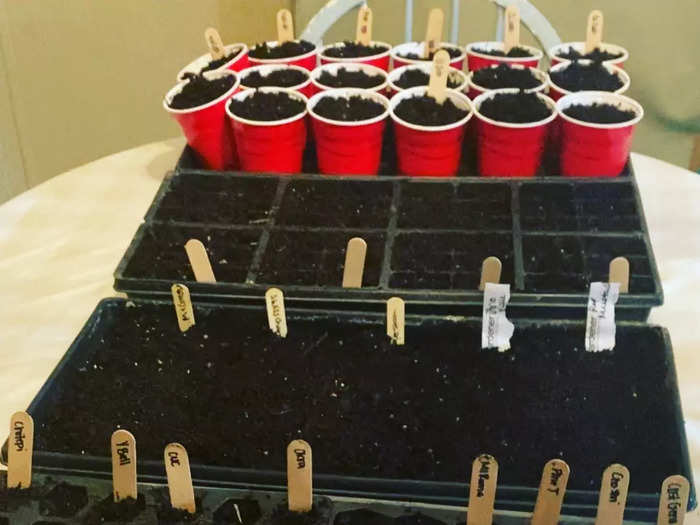
Seedlings at Standing Pine homestead. Courtesy subject
Tomatoes are the classic homesteader's first crop, said Nivek Anderson Brown of Leaf and Bean Farm.
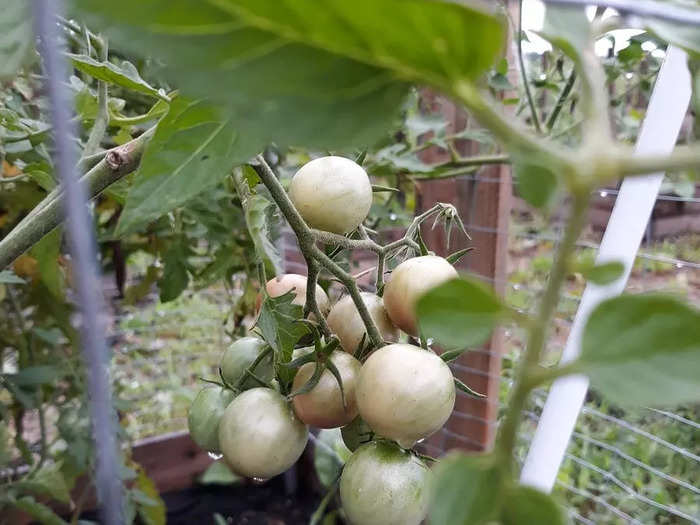
Tomatoes at The Leaf and Bean Farm. Courtesy subject
It's because they're pretty easy. "You can put [them] in the ground, walk away, and you can get some fruit," Brown said.
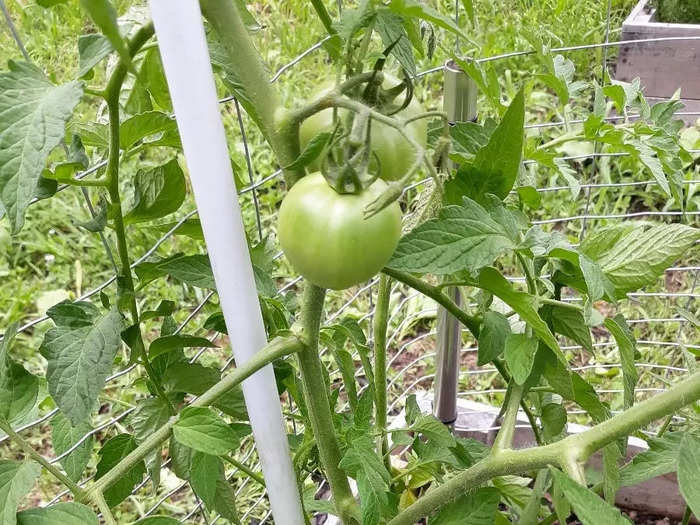
Tomatoes at Leaf and Bean Farm. Courtesy subject.
Tomatoes also take well to bucket or container gardening, advised Cidni, the homesteader in East Texas.
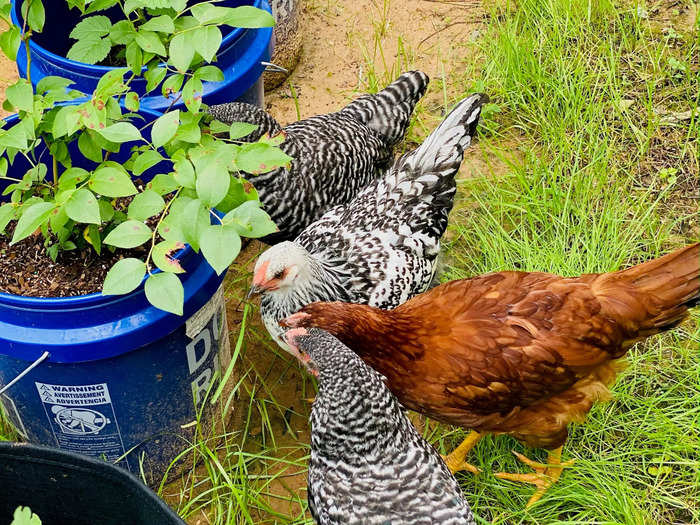
Chickens and tomatoes at Standing Pine homestead. Courtesy subject
She and her husband started growing tomatoes in containers when they lived in apartments.
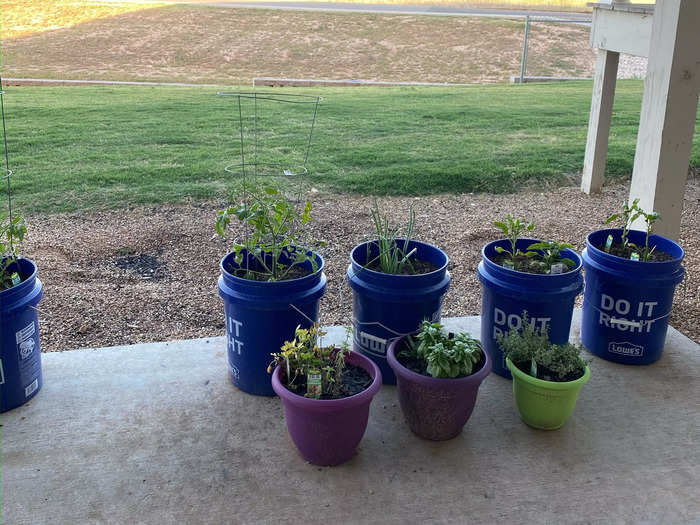
Apartment patio tomatoes. Courtesy subject
You can get buckets for cheap at Lowe's and drill holes, Cidni said.
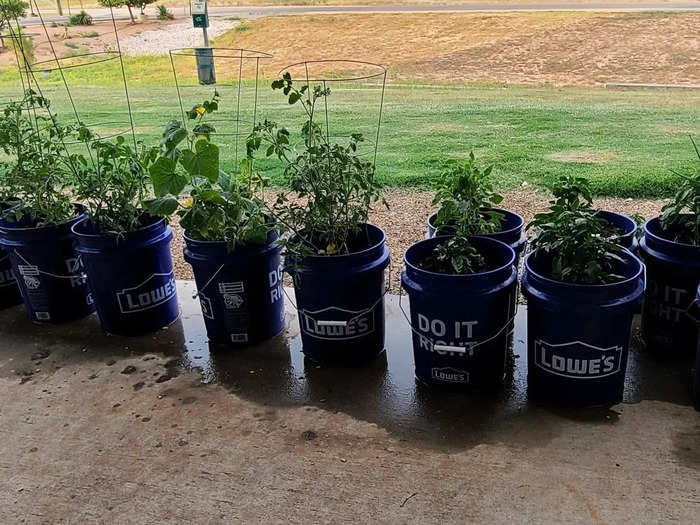
Apartment patio tomatoes from Cidni. Courtesy subject
A few plants can produce many tomatoes, especially in bright sunlight. Just make sure to water them early in the morning or at night, so they don’t scorch, Cidni advised.
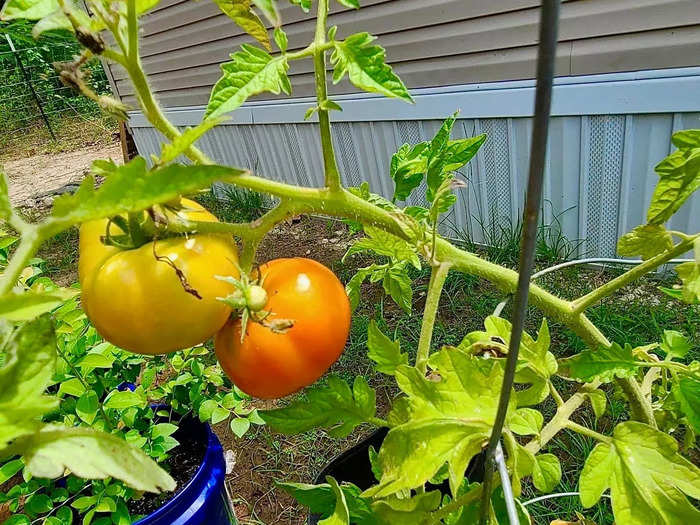
Tomatoes at Standing Pine Homestead. Courtesy subject
But even beginner tomatoes can get out of hand. Last year, Evans didn't prune or "top" her tomato plants, so they just grew like crazy. Optimal pruning methods vary—but just don't forget to do it, or your garden might look like this..
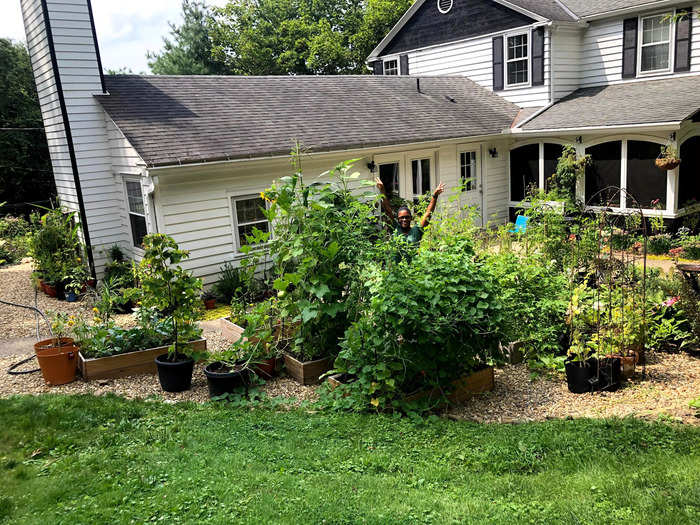
The garden gone wild, summer 2021. Courtesy subject
It might sound intimidating, but chickens can be an easy thing to start with, too, noted Brown of Leaf and Bean.
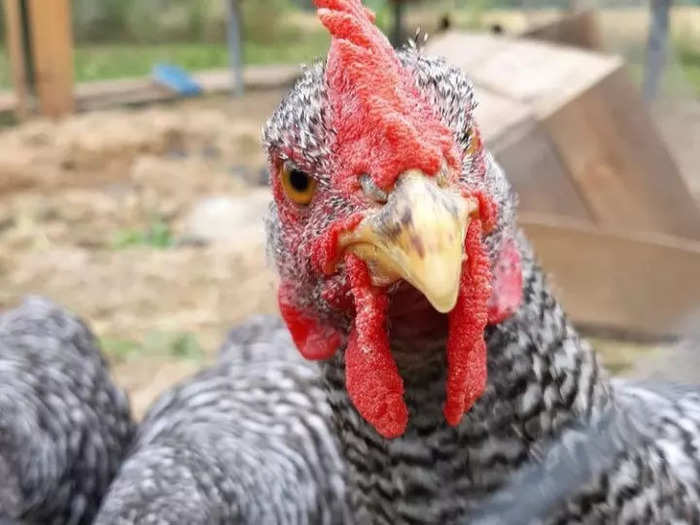
Chickens at The Leaf and Bean Farm. Courtesy subject
If you only have a little bit of space, you can get two birds, she said. They can live in a dog kennel or even a baby pen.
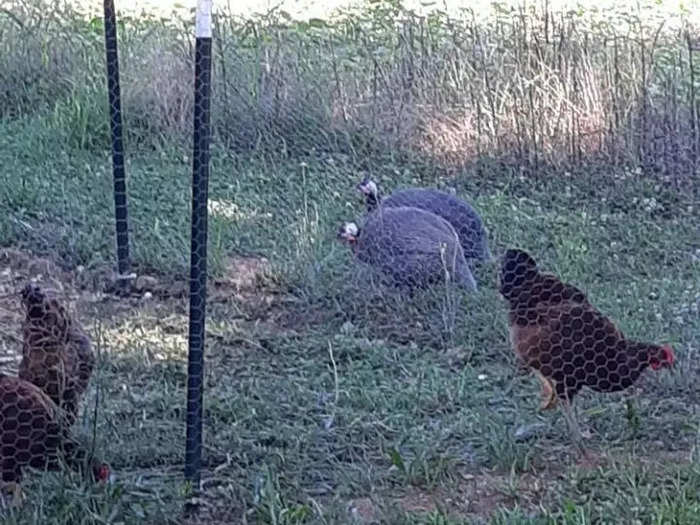
Chickens roaming at Leaf and Bean. Courtesy subject
They're also cheap. Brown said in her area a feed bag that last several months costs about $14.
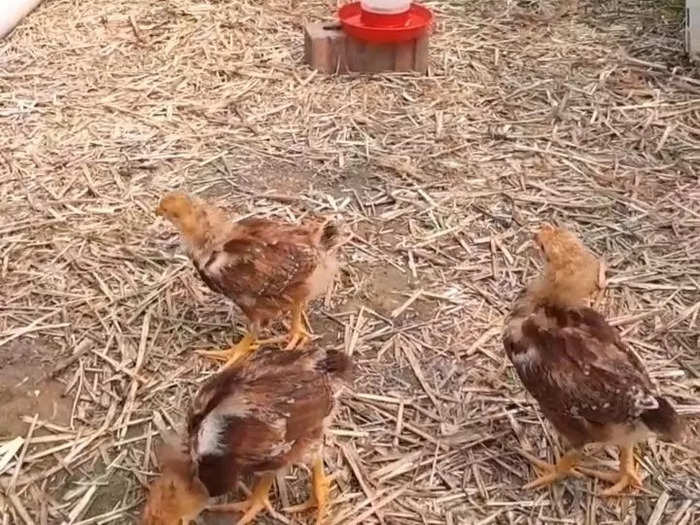
Small chickens at The Leaf and Bean Farm. Courtesy subject
Compare this, she added, to buying eggs every week amidst inflation and avian flu. Prices have gone up sharply in the last two months, but she estimated it’s cheaper even in normal times.
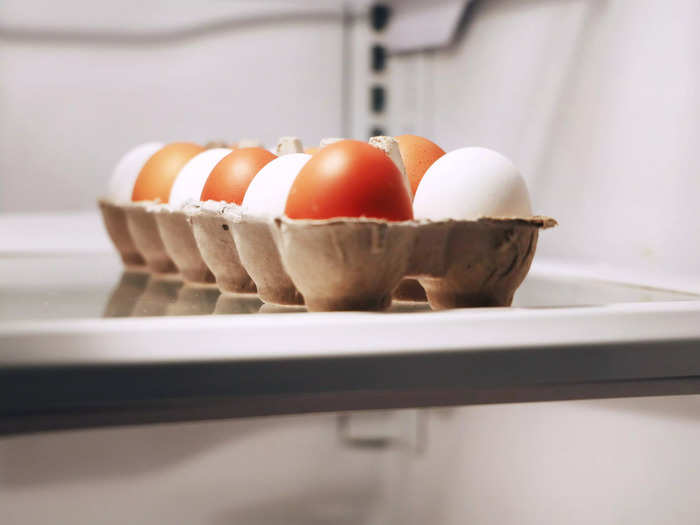
Refrigerated eggs BI Photo / Isabel Fernandez Pujol
Brown said you can get one adult egg-laying chicken for as little as $14.
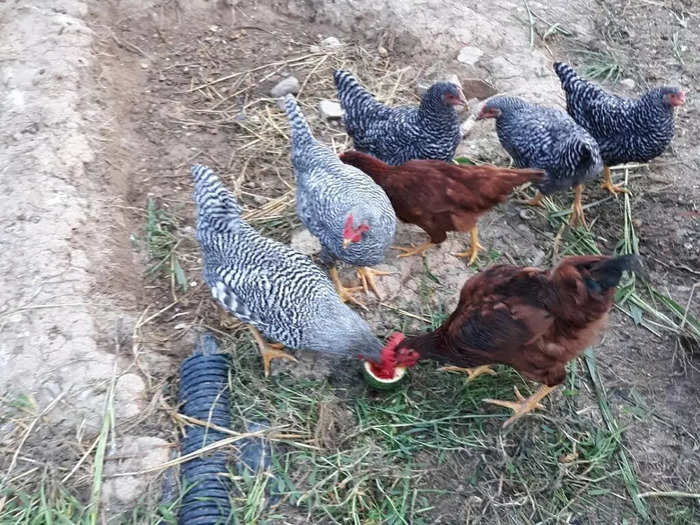
Chickens at Brown's homestead. Nivek Anderson Brown
If you want to buy a chick, they’re cheaper, but then you have to set up a nursery, which costs space and time, Brown noted.
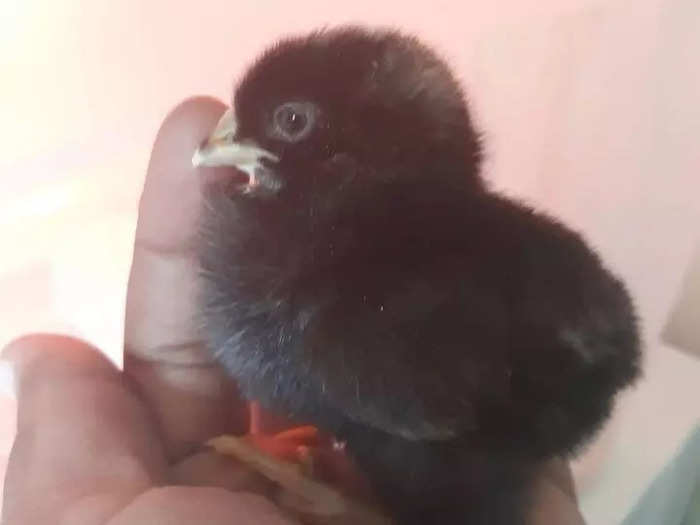
A chick at Leaf and Bean. Courtesy subject
Chickens "don't need much," Brown said. But she recommended buying at least two. "They need somebody to talk to," she joked.
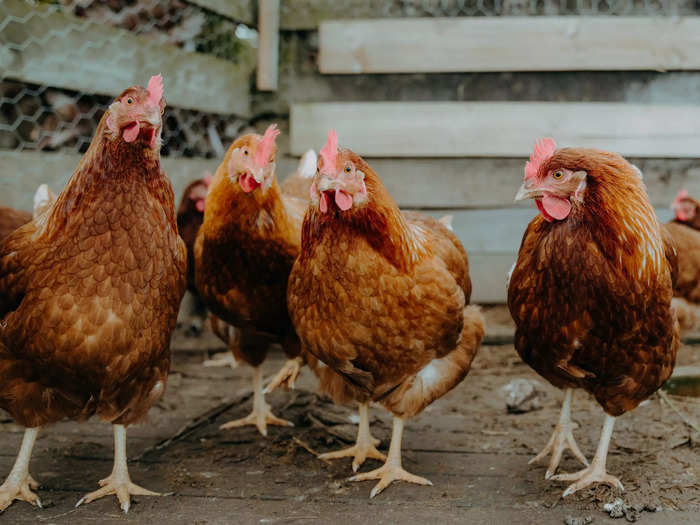
Tao Xu/Getty Images
Brown also says beginner preppers and homesteaders should look into baking bread. It's something she got into after becoming a homesteader and can now bake things like easily sliced bread and hamburger buns.
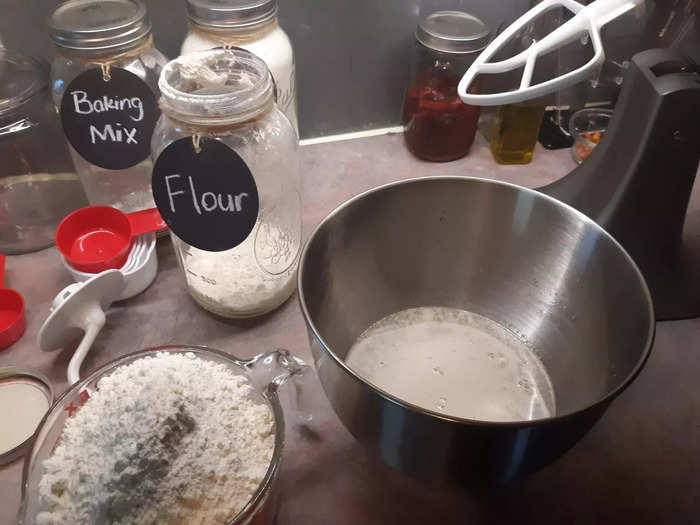
Baking at The Leaf and Bean. Courtesy subject
It's one of the first things that disappears from grocery store shelves in a crisis, she said.
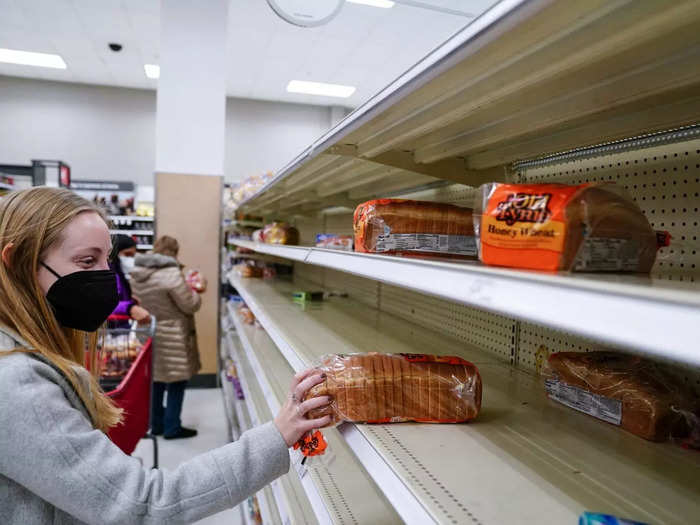
Bread aisle shelves at a Target are seen nearly empty as the U.S. continues to experience supply chain disruptions in Washington, U.S. REUTERS/Sarah Silbiger
It's an easy way to increase your self-sufficiency during supply-chain disruptions, she said.
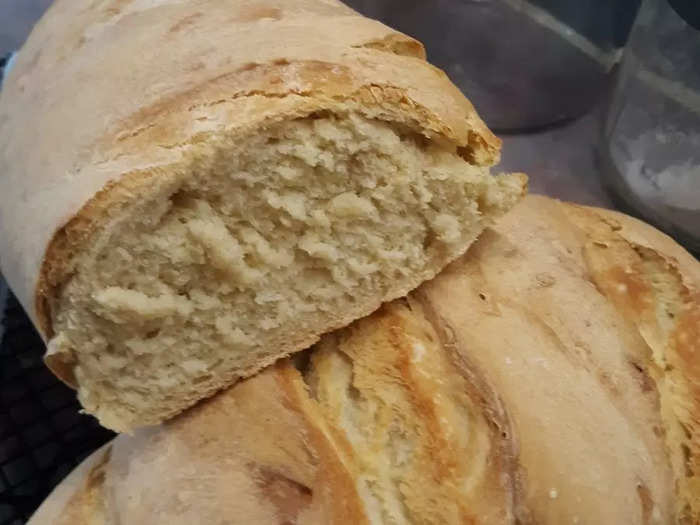
Homemade bread at The Leaf and Bean Farm. Courtesy subject
Shallon, a homesteader in Appalachia whose family has been foraging, gardening, and hunting, for generations says her beginner tip is: grow herbs.
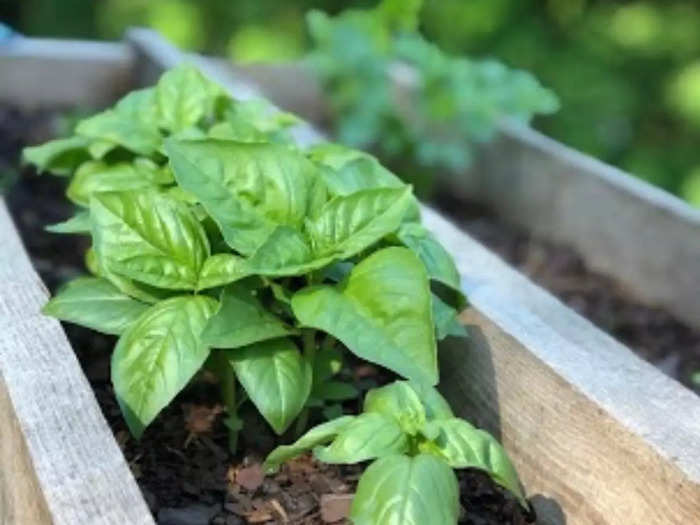
Genovese basil at The Appalachian Homestead. Courtesy subject
(She also uses just her first name online for privacy reasons.)
“Even where you are in the middle of a city you can have pots of herbs on a windowsill or anywhere, really, and they’ll kind of take care of themselves.” she said.
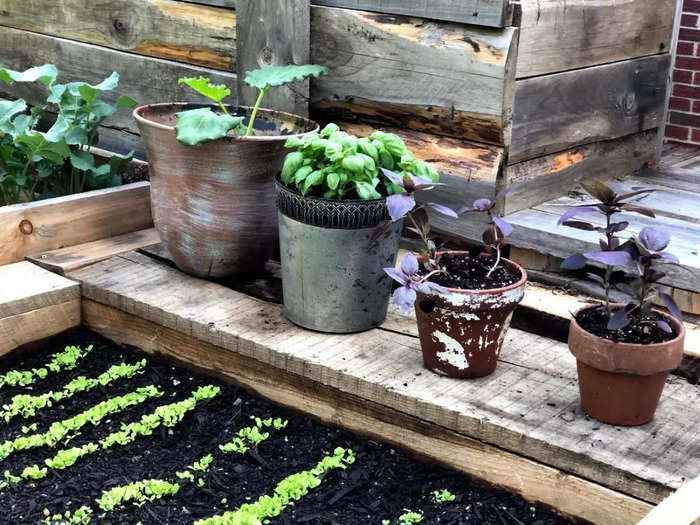
Potted rhubarb, Genovese basil, and dark opal basil at The Appalachian Homestead. Courtesy subject
"They kind of grow themselves and thrive on neglect," she added (besides basil, which does need consistent water and some pruning.)
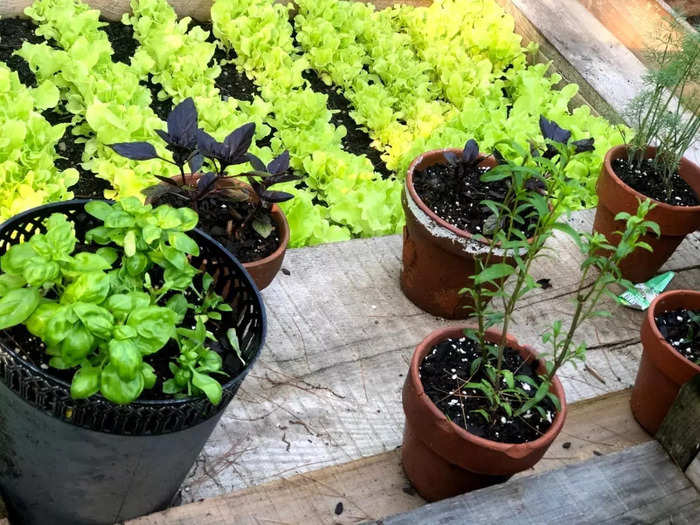
Herbs at The Appalachian Homestead. Courtesy subject
“You can grow herbs even if you have a black thumb,” Shallon added.
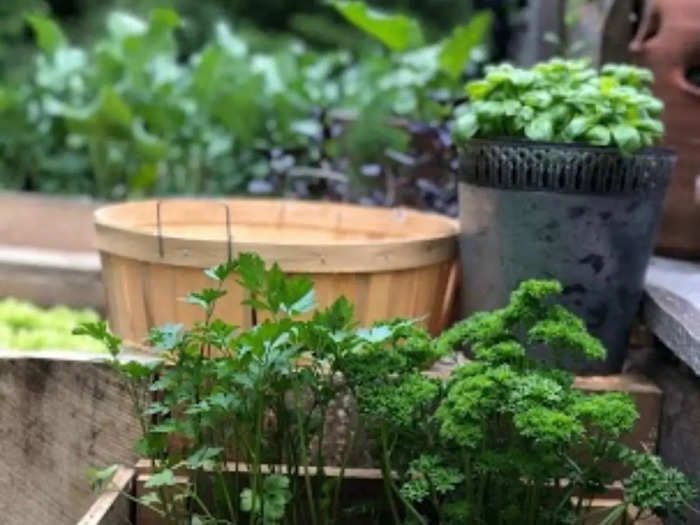
From back to front: Genovese basil and flat leaf and curly parsley. Courtesy subject
All of the following, are great for beginners, Shallon said. Going clockwise from the top: cilantro, tarragon, dill, thyme, curly leaf parsley, dark opal basil, and Genovese basil.
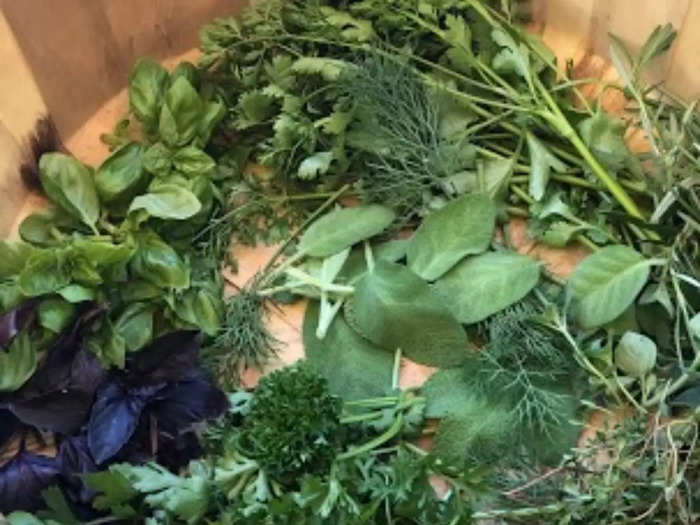
Herb haul at The Appalachian Homestead. Courtesy subject
Shallon said she comes from a lineage of herbal medicine "granny women," (though they do believe in modern medicine too, she noted). This weed, an Oxeye daisy, is said to be good for respiratory infections.
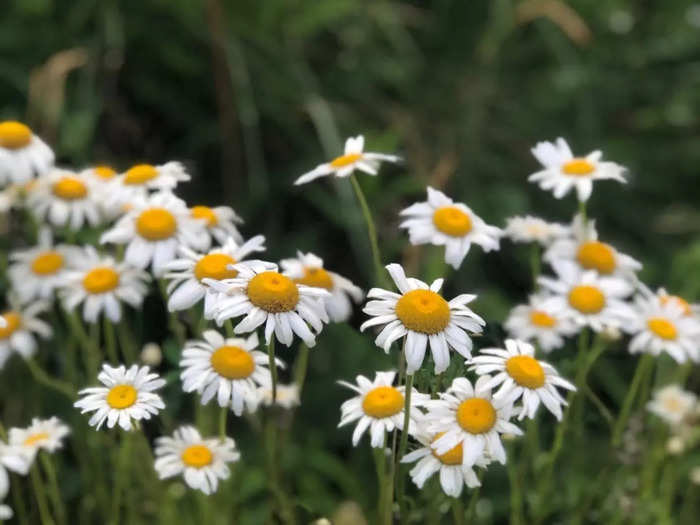
Oxeye daisies at The Appalachian Homestead. Courtesy subject
Those generational resources can make it easier to be resourceful, too. Here, one of her late grandmother's lineage of hollyhock flower is staked with a broken arrow she had on hand.
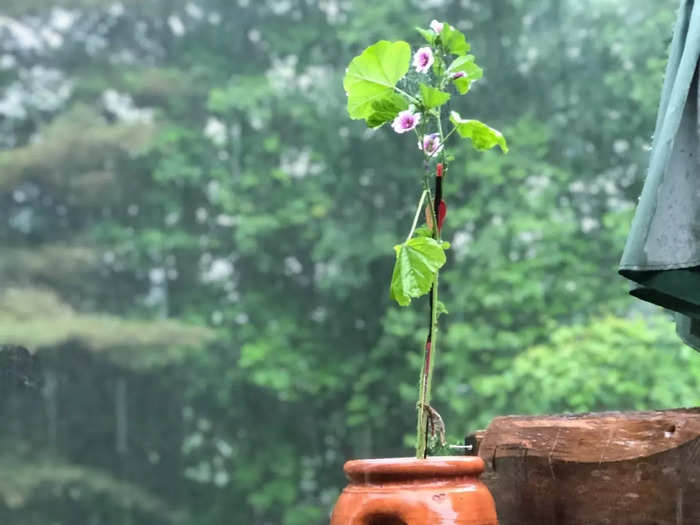
Hollyhock flower at The Appalachian Homestead. Courtesy subject
The basil on the right is in a cracked trash can she repurposed. She said people in her area use old newspapers to nurse seeds.
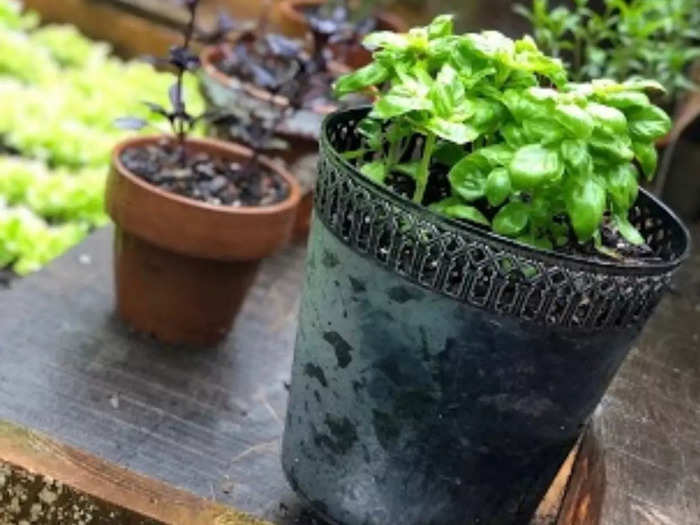
More basil at Shallon's homestead. Courtesy subject
Starting with a small herb garden is better for beginners than foraging, which can be dangerous, Shallon thinks.
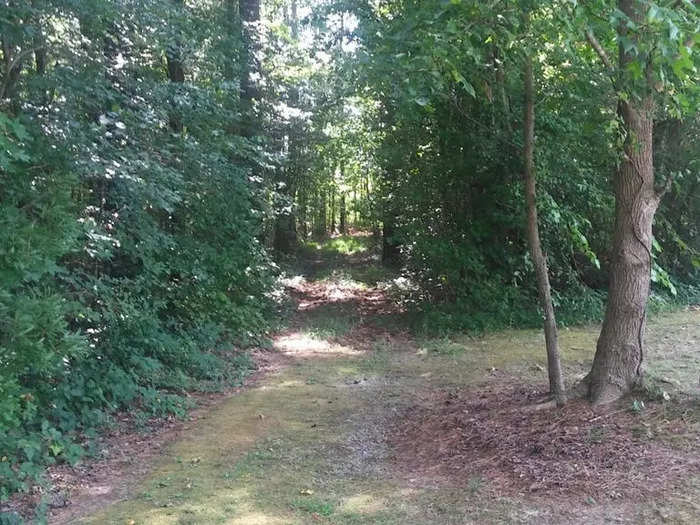
Land at the Leaf and Bean Farm homestead in Virginia. Nivek Anderson Brown
If you mix up something like hemlock and yarrow, "you'll end up dead, not sick but dead," Shallon said.

A badger may look cute - but they're wrecking havoc in an English cemetery Arterra/Universal Images Group/Getty Images
Foraging also has pollution concerns.

Industrial factory chimney emitting smoke and gas pollution into the atmosphere. Stock Photo/Getty Images
Even though you can easily buy herbs at the store, Shallon thinks it's cheaper to grow them.
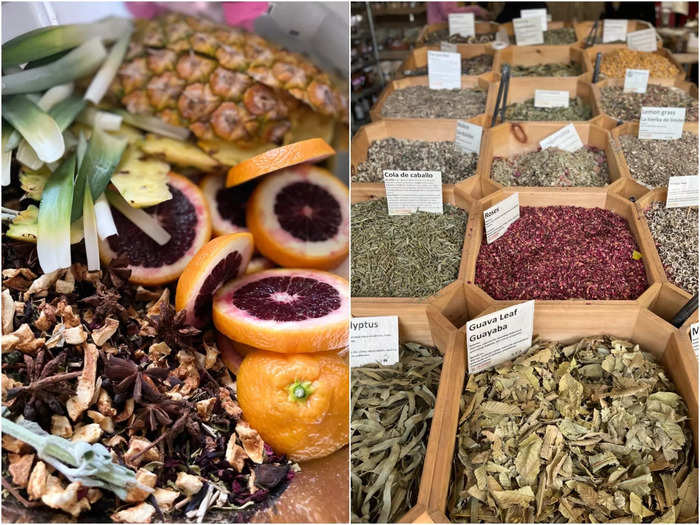
Herbs and spices that Eryn Angellé made into a spirit water. Eryn Angellé
You might pay a couple of dollars for a pack of herbs at the store, or "you can grow half a bushel for $3," she said.
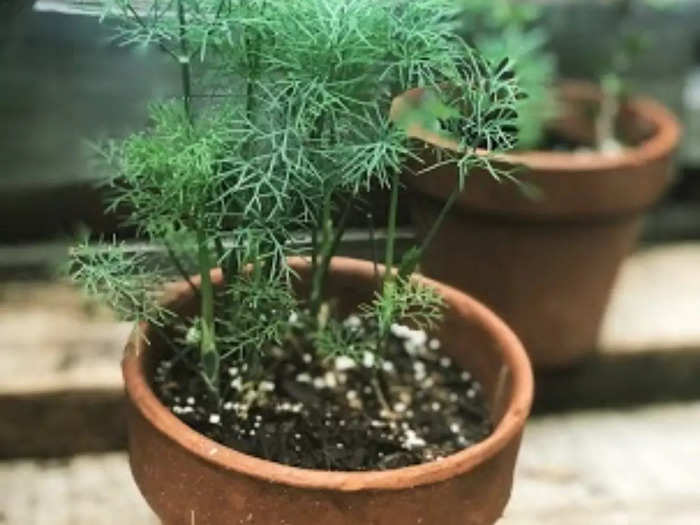
Growing dill at the homestead. Courtesy subject
Inflation driving interest in growing your own food makes sense, Shallon said.
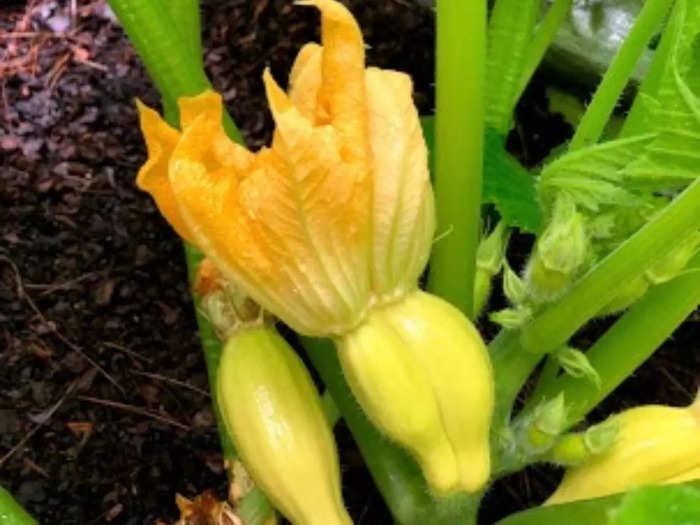
Yellow squash at The Appalachian Homestead. Courtesy subject.
“I think people are afraid. The supply chain, inflation, and general fear are driving it, because people are afraid of WW3,” she said.
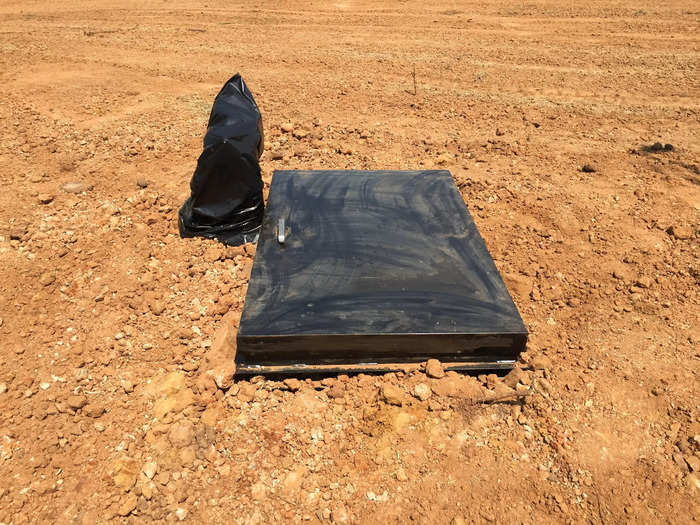
A bunker hatch. Courtesy of Rising S Company.
That doesn't mean all the fear and anxiety driving it makes sense, though, she said.
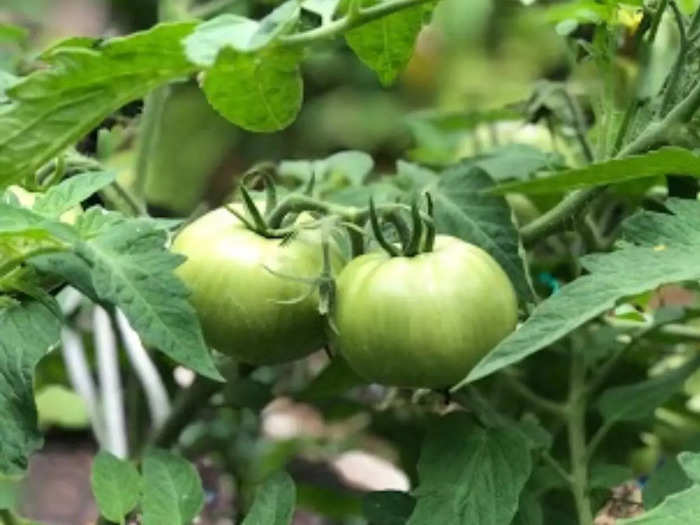
Tomatoes at The Appalachian Homestead. Courtesy subject
She said she gets a lot of social media messages with people advising her to grow wheat amid Ukrainian wheat shortages. But that’s an export crop for the US, she notes.

Andy Sacks/Getty Images
She's also seen more interest online from people in the northern US who are aware they have a shorter growing season and are farther away from places with longer ones, like say, the Dakotas.
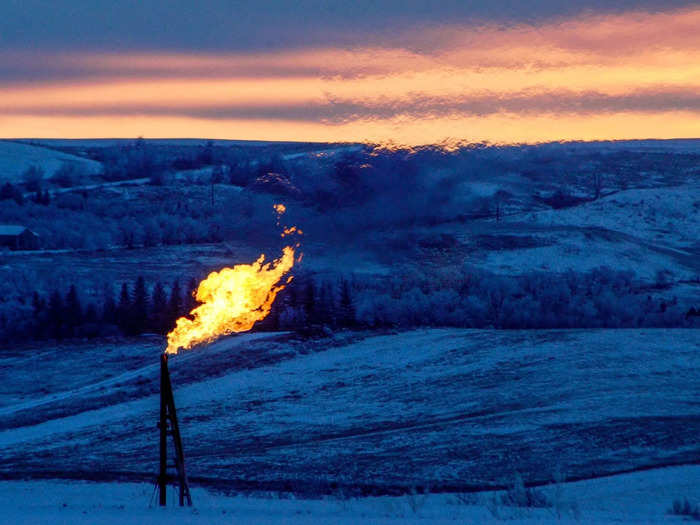
A natural gas flare on an oil well pad burns as the sun sets outside Watford City, North Dakota January 21, 2016. Andrew Cullen/Reuters
But people all over can attempt to save some money and have fun amid stressful circumstances with a few homesteader tricks.
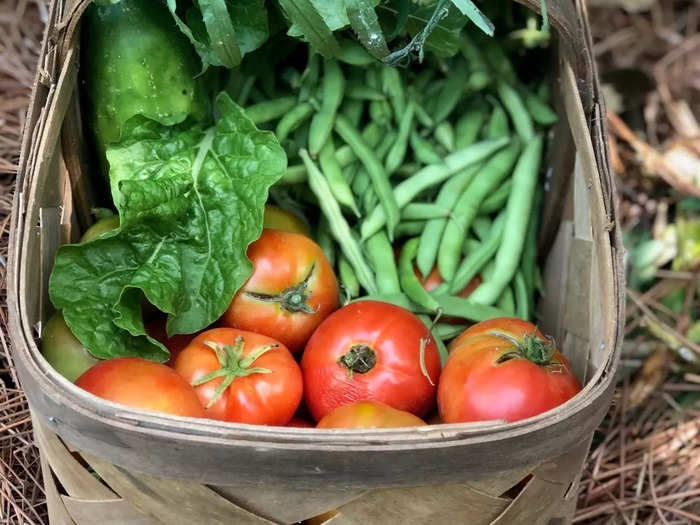
Herbs and tomatoes at The Appalachian Homestead. Courtesy subject
READ MORE ARTICLES ON
Popular Right Now
Popular Keywords
Advertisement